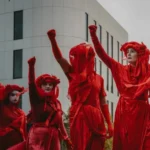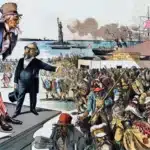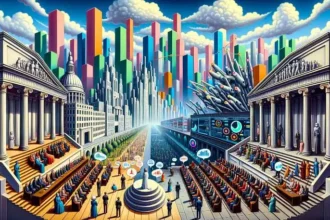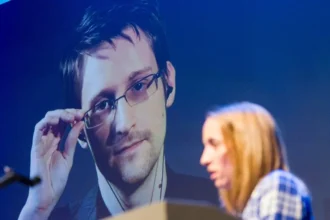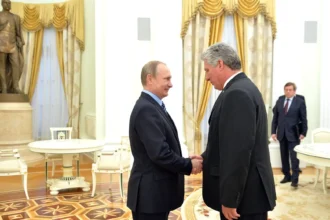Navigating the Boundaries of Speech
In the ever-evolving landscape of democratic societies, the concept of freedom of expression stands as a testament to human liberty and societal progress. Yet, as fundamental as this right is, its application is not without limitations and nuances. The exploration of speech boundaries delves into the heart of this complexity, posing critical questions about the extent and limits of what can be freely expressed in our modern world.
- Navigating the Boundaries of Speech
- The Theoretical Underpinnings of Speech Limits
- Legal Parameters Shaping Speech Boundaries
- Ethical Considerations and Societal Impact of Speech Boundaries
- Digital Era and the Evolution of Speech Boundaries
- Future Perspectives on Speech Boundaries
- Striking a Balance in the Landscape of Speech Boundaries
This intricate balance between unrestricted expression and the necessary safeguards to protect societal harmony forms the core of our discourse. How does one navigate the thin line between upholding free speech and ensuring the collective well-being of a diverse populace? As we venture into this exploration, we confront legal, ethical, and social dimensions that shape the boundaries of what can be said, written, or broadcasted.
The notion of boundaries of speech is not just a legal dilemma but also a reflection of our evolving societal values. It’s a dynamic interplay of individual rights, public interest, and cultural sensitivities. This article aims to unravel these complexities, offering insights into how societies across the globe define, challenge, and uphold the limits of free expression. As we journey through theoretical foundations, legal precedents, and ethical considerations, we gain a deeper understanding of the role and responsibility that comes with the power of speech in our interconnected world.
The Theoretical Underpinnings of Speech Limits
The dialogue around the boundaries of speech is deeply rooted in a rich tapestry of philosophical thought and legal precedent, marking the evolution of how societies perceive and regulate expression. This journey into the theoretical underpinnings begins with the Enlightenment philosophers, who championed the notion of free speech as a vehicle for personal liberty and societal progress. Their ideas laid the groundwork for modern interpretations of expression, emphasizing the necessity of free discourse for a thriving democracy.
Ethical debates in the realm of free speech often revolve around the tension between individual liberty and collective well-being.
Yet, as much as freedom of expression is celebrated, its unrestricted exercise is not without consequences. Herein lies the crux of our exploration: identifying the juncture where free speech intersects with the need for societal regulation. This intersection is not static but fluctuates with the shifting sands of societal norms and values. It’s a delicate balance, where the right to speak freely must be weighed against the potential harm to individuals and groups.
Legal systems worldwide have attempted to delineate these boundaries through laws and judicial rulings. The complexities arise when these legal frameworks encounter the diverse realities of multicultural societies. The legal interpretations of what constitutes permissible speech vary significantly, influenced by cultural, political, and social factors. In democratic societies, the courts often grapple with questions about hate speech, defamation, and the right to offend, each scenario presenting its unique set of challenges.
Moreover, the advent of digital communication has introduced new dimensions to this debate. The internet, a global platform for expression, has blurred geographical boundaries and magnified the impact of speech. This digital era compels us to reconsider traditional notions of speech limits, as the potential for harm and misinformation has exponentially increased.
Legal Parameters Shaping Speech Boundaries
As societies grapple with defining the legal parameters of free speech, the concept of boundaries of speech emerges as a pivotal area of focus. The legal landscape across the globe presents a mosaic of regulations and interpretations, reflecting diverse cultural and societal values.
In democratic societies, the judiciary plays a crucial role in interpreting and enforcing these boundaries. Landmark court cases often become the benchmarks for defining what constitutes permissible speech. These legal decisions navigate a range of sensitive issues, from national security concerns to individual rights to privacy and dignity. For instance, laws against hate speech, intended to protect minority groups from harmful rhetoric, also raise questions about the extent to which governments can restrict speech to maintain social harmony.
The right to express controversial opinions must be balanced against the potential harm such expressions may cause.
The challenge intensifies in the context of global communication platforms, where speech can transcend national borders and cultural contexts. The advent of social media and the internet has necessitated a reevaluation of traditional legal frameworks. Governments and international bodies are now faced with the daunting task of regulating speech in a digital realm that knows no boundaries, where the line between free expression and harmful content is increasingly blurred.
Moreover, the legal parameters around speech boundaries are not just about prohibitions and restrictions. They also involve ensuring that the right to free expression is not unduly stifled by governmental or private entities. This involves protecting whistleblowers, journalists, and activists who use their voice to highlight issues of public interest, often in the face of significant opposition.
Ethical Considerations and Societal Impact of Speech Boundaries
Navigating the ethical landscape of speech boundaries is a complex endeavor, one that requires a nuanced understanding of the impact of words on society. Ethical debates in the realm of free speech often revolve around the tension between individual liberty and collective well-being.
For instance, the right to express controversial opinions must be balanced against the potential harm such expressions may cause, such as inciting violence or perpetuating discrimination. These ethical considerations are not merely abstract concepts but have real-world implications, influencing how societies decide what is acceptable discourse.
The impact of speech on societal harmony and individual dignity is another crucial aspect. Speech that degrades, intimidates, or marginalizes individuals or groups can have far-reaching consequences, contributing to a hostile and divisive social environment. In addressing these challenges, ethical frameworks guide us in determining the extent to which restrictions on speech are necessary and justified.
Moreover, the digital age has amplified the ethical challenges surrounding speech boundaries. Online platforms can serve as echo chambers, exacerbating polarization and spreading misinformation. This digital proliferation of speech raises questions about the ethical responsibilities of platform providers in moderating content and the role of users in engaging with and disseminating information.
In grappling with these ethical dilemmas, it is essential to strike a balance that respects free expression while also recognizing the power of words to shape societal norms and individual experiences. The boundaries of speech, therefore, are not just legal constructs but are deeply embedded in the ethical fabric of our societies. Understanding these ethical dimensions is key to appreciating the broader implications of speech and its regulation in our increasingly interconnected world.
Digital Era and the Evolution of Speech Boundaries
The advent of the internet and social media has democratized information dissemination, allowing individuals to share their thoughts instantly and globally. While this has empowered voices that were previously marginalized, it has also raised significant concerns about the regulation of online speech. The sheer volume and velocity of digital communication make it difficult to monitor and moderate content effectively, leading to debates over the role of tech companies in policing speech.
One of the key challenges in the digital sphere is the spread of misinformation and hate speech. The anonymity and reach of the internet can embolden individuals to express views they might not share in a physical setting, often with little regard for the consequences. This poses a threat not only to individual dignity and public safety but also to the integrity of democratic processes and institutions.
Furthermore, the global nature of the internet means that speech can cross cultural and jurisdictional boundaries, complicating the enforcement of local speech regulations. What may be considered free speech in one country could be deemed illegal or offensive in another, creating a complex web of legal and ethical considerations.
Despite these challenges, the digital era also offers opportunities for more inclusive and diverse discourse. Online platforms can facilitate cross-cultural dialogue and understanding, enabling a broader exchange of ideas and perspectives. The key is to find a balance that harnesses the positive aspects of digital communication while mitigating its potential harms.
As we continue to navigate the digital transformation of society, the conversation about the boundaries of speech becomes ever more pertinent. Understanding and adapting to these changes is crucial in ensuring that freedom of expression thrives in the digital age, respecting both individual rights and societal values.
Future Perspectives on Speech Boundaries
As we look towards the future, the discourse surrounding speech boundaries enters an increasingly complex terrain, shaped by evolving societal norms, technological advancements, and global interconnectedness. The ongoing evolution of societal values plays a crucial role in shaping the future of speech boundaries. As diverse perspectives and experiences continue to influence public discourse, our collective understanding of what constitutes acceptable speech will undoubtedly shift. This evolving landscape requires a dynamic approach to regulating speech, one that is responsive to cultural and societal changes while remaining committed to protecting fundamental freedoms.
Technological advancements, particularly in artificial intelligence and machine learning, will also significantly impact how speech is monitored and regulated. These technologies offer the potential for more sophisticated content moderation systems, capable of identifying and mitigating harmful speech more effectively. However, they also raise ethical questions about censorship, bias, and the role of algorithms in shaping public discourse.
Moreover, the global nature of communication and information exchange will continue to challenge traditional notions of jurisdiction and governance in regulating speech. International cooperation and dialogue will be essential in developing frameworks that respect diverse cultural norms and legal systems while upholding the universal value of free expression.
Striking a Balance in the Landscape of Speech Boundaries
In conclusion, the exploration of speech boundaries in modern society reveals a landscape marked by dynamic tension and continuous evolution. The journey through the philosophical, legal, ethical, and digital realms of free speech underscores the complexity of balancing individual rights with collective societal interests.
The theoretical underpinnings of freedom of expression remind us of its fundamental role in democratic societies, serving as a pillar of personal autonomy and public discourse. Yet, the legal challenges we’ve examined highlight the nuanced task of defining these freedoms within a diverse, multicultural global context. Each legal precedent and statute contributes to a broader understanding of how free speech interacts with other societal values and rights.
Ethical considerations, particularly in the era of digital communication, bring to light the profound impact speech has on individuals and communities. The responsibility that comes with the power of words cannot be understated, as they have the potential to both empower and harm. Navigating these ethical dilemmas is crucial in maintaining a society where freedom of expression flourishes alongside respect for diversity and human dignity.
Looking to the future, the boundaries of speech will undoubtedly continue to be shaped and reshaped by societal changes, technological advancements, and global interconnectedness. The task ahead is not to find a static, one-size-fits-all solution, but to engage in ongoing, inclusive dialogue that respects diverse perspectives and experiences.
Ultimately, the balance we seek in the landscape of speech boundaries is not a final destination but a continuous journey. It requires vigilance, adaptability, and a commitment to uphold the core values of freedom and respect. As we navigate this complex terrain, our collective efforts will shape the future of free expression, ensuring that it remains a cornerstone of vibrant, democratic societies.
Adapted from an academic article for a wider audience, under license CC BY 4.0.



